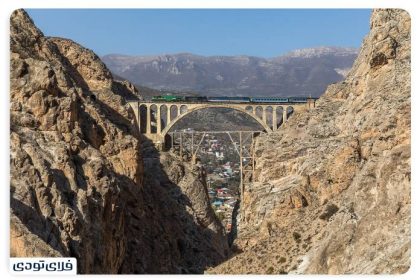In an interview, Mohammad Javad Atabki, CEO of Uptime, reviewed the current state of this industry in Iran, emphasizing the importance of artificial intelligence in the logistics industry. Referring to the infrastructural challenges and the need to use new technologies, he considered the future prospects of this industry to be promising if the obstacles are removed.
The impact of artificial intelligence on the logistics industry
In this conversation, the CEO of Uptime pointed out the key role of artificial intelligence in improving productivity and increasing the efficiency of the logistics industry. He believes that this technology can make significant changes in various fields including warehousing, smart distribution and fleet management.
Atabaki said, “Artificial intelligence can play a fundamental role in reducing fuel consumption, shortening the time of delays and increasing the efficiency of the fleet.” However, he emphasized: “Many companies in Iran have not yet widely used this technology, and this issue indicates the need for culture building and awareness in this field.”
The role of uptime in the digitalization of the logistics industry
Referring to the challenges in Iran’s logistics industry, Atabaki described this industry as weak in terms of infrastructure and technology penetration. He said: “Compared to other countries, this industry still has a long way to go. According to Atabaki, some big companies with high financial power have started to use artificial intelligence, but this process has not yet been widely implemented in the country.
Uptime’s CEO continued to talk about his company’s role in promoting digitalization and the use of artificial intelligence in the logistics industry. He said in this regard, “Uptime has been able to show them the necessity of using technology and artificial intelligence by cooperating with large companies and achieved success in this field.”
Atabaki added: “We have been able to cooperate directly and indirectly with a few dozen companies or even with more than a few hundred companies at the end of the year.”
At the end, referring to the future prospects of this industry, Atabaki emphasized: “If the basic and infrastructural issues of the logistics industry are solved in Iran, this country can achieve a good position in the world within 5 to 10 years.” In the end, he emphasized the importance of artificial intelligence and new technologies in this industry, and expressed his hope that with continuous efforts, this path of progress will be taken faster.
RCO NEWS
















